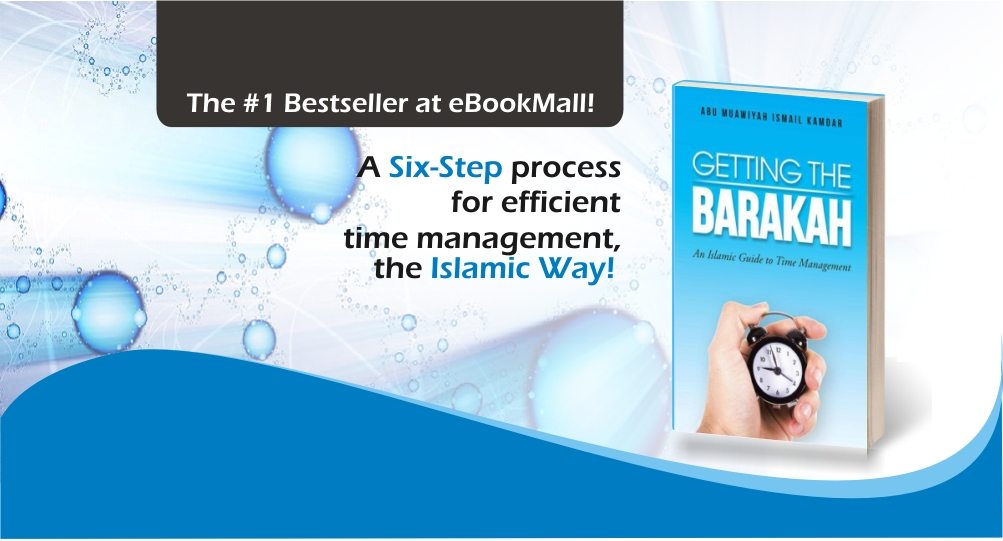Ways to overcome failure:
There are many ways to overcome failure. Failing to meet a goal is a natural part of progress. As the old proverb states: “If you aren’t failing, you aren’t trying anything new”. When it comes to our goals, we often are held back by one of two extremes:
1. We are afraid to fail, so we don’t even try
2. We are so sure we won’t fail, that we get disillusioned and give up as soon as we face our first taste of failure
Being afraid to fail is something I tackled in details in my book Best Of Creation: An Islamic Guide To Self-Confidence. In this post, I want to tackle the second issue, dealing with failure itself when it hits us. So here are my five steps for overcoming failure:
1. Expect it to happen
It is naive to think that we can accomplish all of our goals in life without facing any tests and setbacks along the way. Tests and setbacks are a natural part of life, so we should expect them, plan for them, and deal with them wisely. Whether it comes to our spiritual goals or worldly goals, we will be tested, and it is these moments of test that show who we really are inside.
One of the ways to overcome failure is to expect things to go wrong. If they do, deal with them as planned. If they don’t, be grateful to Allah and take it as gift from Allah. This makes it a Win/Win situation for you.
2. Accept Your Qadar
Qadar (Destiny) is a very misunderstood concept, regarding which people swing between a fatalistic viewpoint and its opposite. Islam teaches us the middle way, but this is not the place for a detailed discussion on Qadar.
Related to our topic, if you made your plans, made your best effort and stilled failed to attain your goal, then do not despair or feel angry. There are things which are beyond our control and we must accept that what Allah decrees for us is best for us.
If your goal is noble, keep pursuing it knowing that when the time is right, Allah will open the door to help you achieve it. Accepting Qadar and knowing that Allah knows what is best for us gives us a sense of peace and contentment when we do not get what we want in this world.
3. Have a Plan B, C, D, E….
One of the ways to overcome failure is to have backup plans. The chances of accomplishing your goal at the very first instance is highly unlikely. So as brilliant as your current plan may be, you need to plan for when things don’t go your way. Think about anything that could possibly go wrong and how you can deal with it. Make a backup plan, and a backup plan for that backup plan, so that no matter what goes wrong, you continue towards your goal through alternative routes.
When the Prophet (peace be upon him) and his companions set off from Madinah to perform Umrah in Makkah, they were prevented from entering Makkah. This led to Plan B, signing a peace treaty with the leaders of Makkah, allowing them to perform the Umrah the next year. It meant fulfilling their goal of making Umrah one year later, but they accomplished their goal nonetheless, and so much more too. They did not turn back and give up, they found another way to accomplish the goal later.
4. The Sabr Factor – Keep moving forward
Reflect on the Battle of Uhud. The Prophet (peace be upon him) and his companions faced a huge setback at Uhud and lost many good men. They did not despair or give up, the next day they were back on the march despite being injured. They pushed on towards their goal even when things weren’t going their way, and that is one of the factors that opened the doors of victory for them.
This is the Sabr factor. Sabr is not a passive act of sitting back and doing nothing, expecting help to arrive in a miraculous fashion. Sabr is the active attribute of persevering, patiently planning, resisting the temptation to give up and moving forward in spite of the odds. If we want to accomplish anything, we need Sabr as there is no shortcut to true success in this world or the next. Every goal worth accomplishing requires bucketloads of Sabr, so make sure you stock up!
5. Be Flexible
While pursuing your goals, keep an eye out for better goals, nobler pursuits, greater callings or alternative routes to attain your goals. It may be that the goal you set for yourself at age 20 is not something you want to stick to for life. If while chasing that goal, you are introduced to something even better for you, then consider shifting focus. It may be that the earlier goal was temporary to lead you towards this better goal.
In the early years of Islam, many companions moved to Abyssinia, and settled there. Many years later, many of them migrated to Madinah as it had become a better environment to practice and serve Islam in. Likewise, it may be your goal to move to a certain land or practice a certain profession now, yet later in life better opportunities may open up for you. Consider shifting focus as life is constantly changing, so do not stay too focused on the past, look for what is best for your family and yourself in the Afterlife primarily, and in this world as well.
These are five ways to overcome failure that keep me moving forward whenever I fail to meet a goal. I hope in inspires you to do the same. 🙂






